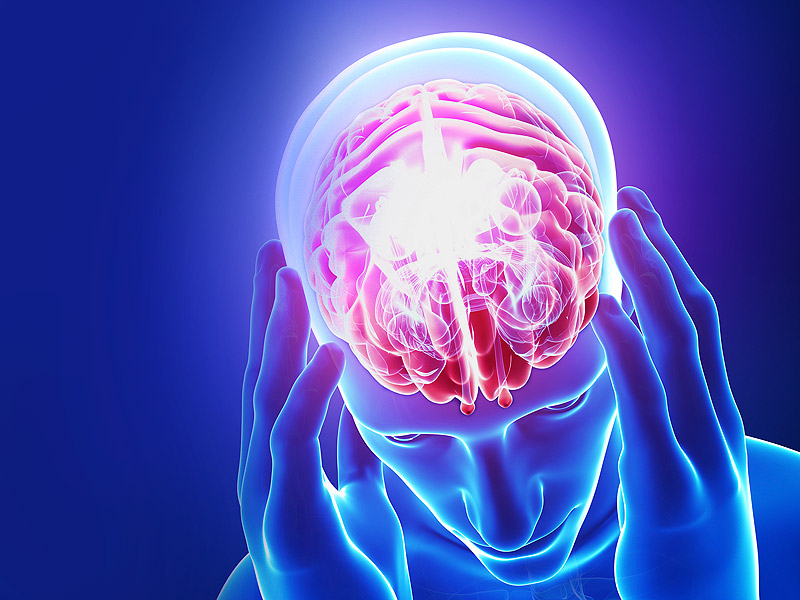Neurologists In A Collaborative Study Identify Stages Of Brain Damage Caused By COVID-19 And Warns Of Future Issues In Recovered Patients
Source: Brain Damage Jun 12, 2020 4 years, 10 months, 2 weeks, 14 hours, 21 minutes ago
Brain Damage: Researchers in a collaborative study involving the NeuroGrow Brain Fitness Center in Virginia, John Hopkins, Washington University and University Of California have published a research paper with a comprehensive review of the COVID-19's effect on the nervous system which classifies brain damage caused by COVID-19 into three stages.

The research is published in The Journal of Alzheimer's Disease.
https://content.iospress.com/articles/journal-of-alzheimers-disease/jad200581
The researchers encourage the adoption of this three-stage classification and call for more research on COVID’s long-term effects on the brain, and stress the need for patients to receive a brain MRI before leaving the hospital.
Dr Majid Fotuhi, author and a nationally-recognized neurologist who is the medical director of NeuroGrow Brain Fitness Center in Northern Virginia and an affiliate staff at Johns Hopkins Medicine told Thailand Medical News, "We are learning that a significant number of hospitalized COVID-19 patients have various degrees of brain impairment. As a medical community, we need to monitor these patients over time as some of them may develop cognitive decline, attention deficit, brain fog, or Alzheimer's disease in the future. There is a lot we can do to promote brain healing in COVID-19 patients, but first we must understand the nature and severity of their neurological deficits.”
He stressed, “At the patient level, getting a baseline MRI before leaving the hospital is imperative so that we have a starting point to evaluate and treat these brain damages.”
Dr Fotuhi and his colleagues warn about neurological issues in patients who suffer from COVID-19, including stroke, seizures, confusion, dizziness, paralysis, and/or coma. Already, two dozen case reports are revealing the impact of COVID-19 on the brains of patients.
Significantly, one study from Wuhan, China, showed that 45% of patients with severe COVID-19 illness experience marked neurological deficits. Another study from France showed 84% of ICU patients with COVID-19 have positive abnormalities on their neurological examination, and that 15% of patients who leave the ICU have residual "dysexecutive function," which involves poor attention and difficulty with decision-making and controlling behavior.
The research study proposes the adoption of a three stage "NeuroCovid" classification scheme to provide a basis from which to build on future hypotheses and investigations regarding SARS-Cov2 and the nervous system.
The classified 3 stages include:
NeuroCovid Stage I - The damage by the coronavirus is limited to epithelial cells of nose and mouth and the main symptoms include transient loss of smell and taste.
NeuroCovid Stage 2 - The coronavirus triggers a flood of inflammation, called cytokine storm, which begins in the lungs and travels in the blood vessels throughout all body organs. This cytokine storm leads to the formation of blood clots which cause small or large strokes in the brain.
NeuroCovid Stage 3 – In this stage, an explosive level of cytokine storm damages the blood brain barrier, the protective insulation layer in blood vessels of the brain. As a result, blood content, inflammatory markers, and virus particles invade the brain and patients develop seizures, confusion, coma, or encephalopathy.
Dr Fotuhi warns that many patients with COVID-19 may have no noticeable neurological symptoms at first; but in some cases, patients may present with neurological symptoms even before they have fever, cough, or shortness of breath. In addition to having an MRI while at the hospital, he stresses that patients will need to be monitored in a few months after their hospitalization.
Dr Fotuhi further added, "
Our experience with previous forms of coronaviruses suggest that in the long-term, ‘recovered’ patients may develop depression, insomnia, Parkinson's disease, memory loss, or accelerated aging in the brain. For those recovering from COVID-19, I recommend regular exercise, eating a heart healthy diet, reducing stress, and improving sleep; these are critical ways patients can rejuvenate their brain and minimize having poor outcomes in the future."
These healthy interventions, along with targeted brain training and neurofeedback therapy, are the main features of Dr. Fotuhi's 12-week Brain Fitness Program.
A previously published study in the Journal of Prevention of Alzheimer's Disease (2016) showed that 84% of elderly with cognitive impairment who complete this brain rehabilitation program gain improvements in their brain function and many of them experience growth in the parts of their brain for learning and memory. These findings were similar for patients who gained recovery from their persistent post-concussion syndrome. The program will now be tailored for patients suffering from post-COVID neurological issues.
It should be noted that Dr Fotuhi who is a Harvard- and Johns Hopkins-trained neurologist and neuroscientist,is widely regarded as an authority in the field of memory, Alzheimer's Disease, concussion treatment, ADHD, and increasing brain vitality at any age.
For more about
brain damage by COVID-19, keep on logging to Thailand Medical News.
Please help support this website by kindly making a donation to sustain this website and also all in all our initiatives to propel further research: https://www.thailandmedical.news/p/sponsorship
